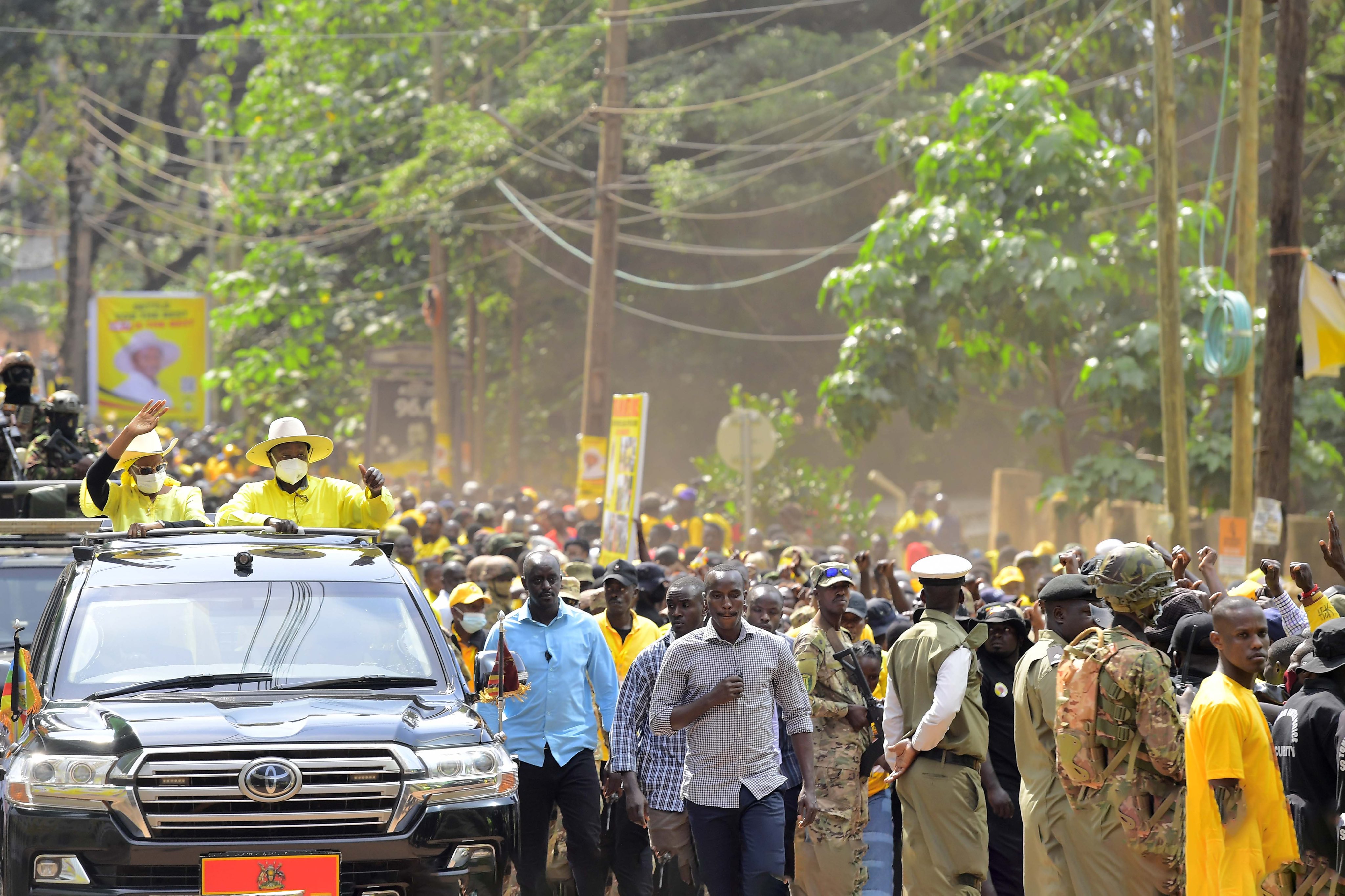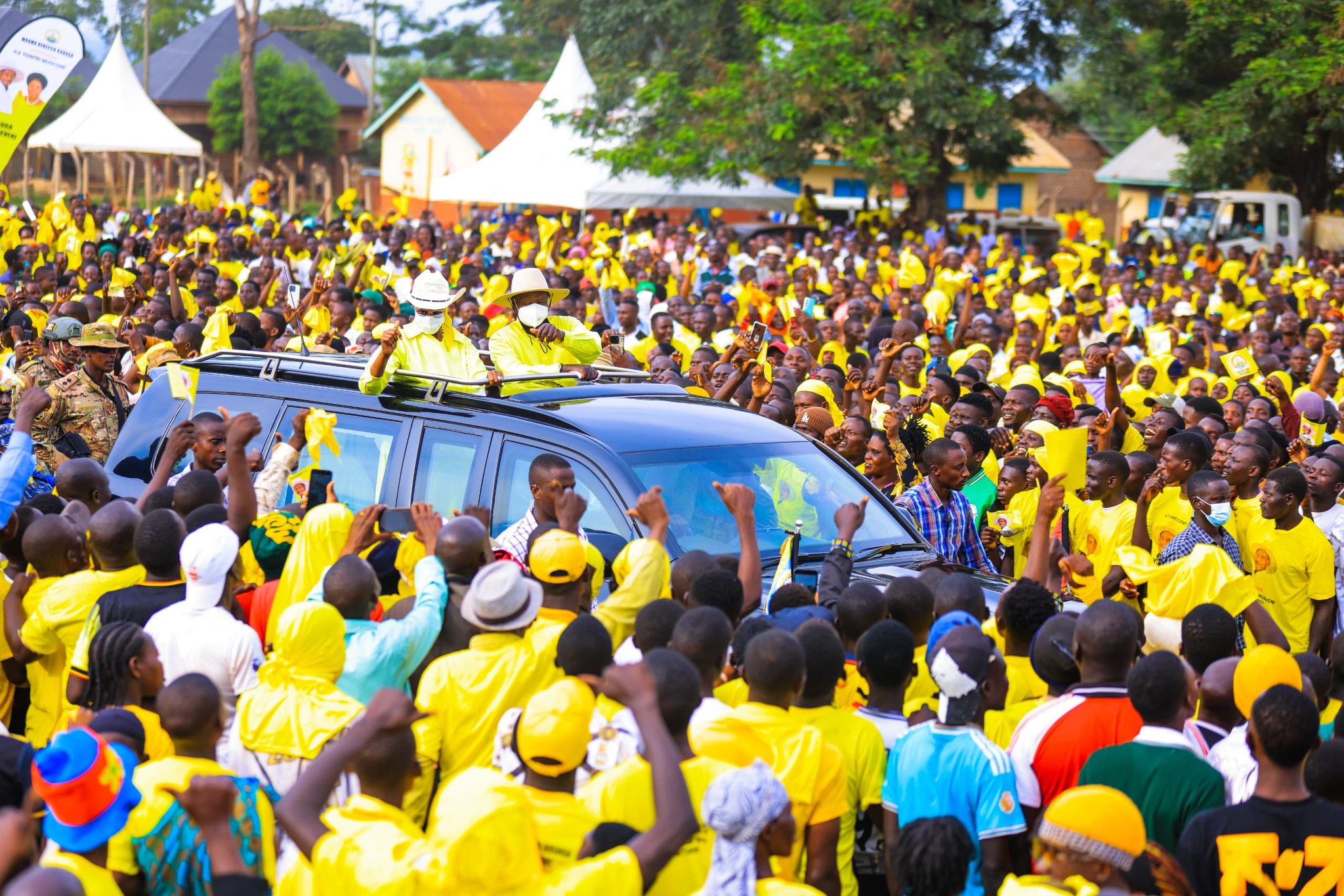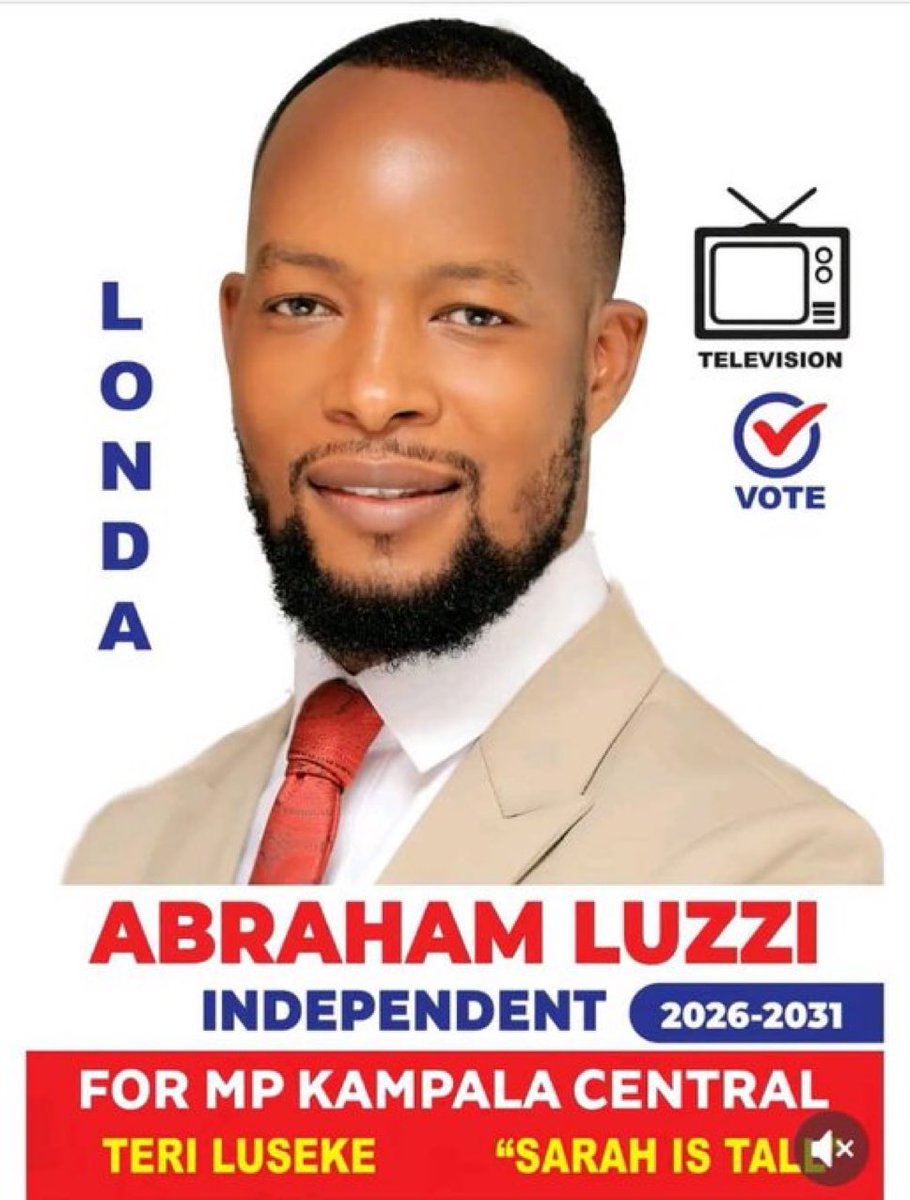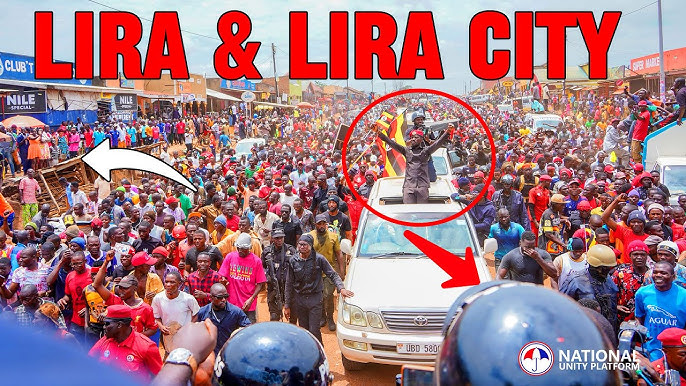In a surprising development that has sparked wide discussion across Uganda’s political landscape, President Yoweri Museveni, the ruling National Resistance Movement (NRM) presidential candidate, postponed his highly anticipated campaign rallies scheduled for Lira City, Lira District, and Kole District on October 6, 2025. This decision, announced just hours before the planned visit, has raised questions about the reasons behind the abrupt change and its potential impact on Museveni’s campaign momentum in the strategically important Lango sub-region.
Museveni’s Lira Campaign Postponement: What Happened?
The ruling party, through its Secretary General Richard Todwong, officially announced that President Museveni’s campaign rallies in Lira City, Lira District, and Kole District were postponed due to “urgent state duties” that required the President’s immediate attention. The announcement came late Friday night (October 4, 2025), just hours before the NRM campaign team and supporters were set to launch major political events in the Lango sub-region.
Todwong explained that as the sitting Head of State and presidential candidate, Museveni has responsibilities that sometimes must take precedence over the campaign trail. The NRM assured supporters that a new date for the postponed rallies would be communicated shortly, emphasizing the party’s commitment to engaging voters in the region.
This postponement was part of a broader campaign schedule adjustment, with Museveni switching to resume his rallies on October 7 in Oyam District and Pakwach later in the day, thereby maintaining a strong presence despite the Lira delay.
The Reasons Behind the Postponement: State Duties Take Priority
While the NRM was clear that “urgent state duties” were responsible for the postponement, details about the exact nature of these duties have remained confidential. However, insiders from the Office of the President indicated that these matters involved strategic national consultations and critical state business that could not be delegated or overlooked.
Such state duties may include high-level security briefings, diplomatic meetings, or emergent national issues requiring Museveni’s direct involvement. Given Uganda’s complex political and security environment both domestically and regionally it is not uncommon for the President to juggle governance responsibilities alongside campaign activities.
A senior NRM official noted: “The President is still the sitting Head of State, and there are moments when national priorities must take precedence over the campaign trail.” This position underlines the dual role Museveni continues to play, balancing official duties and electioneering.
Political and Campaign Implications of the Delay
The postponement in Lira, a key battleground in Northern Uganda, carries several political implications worth noting:
Strategic Significance of Lira: Lira District and the greater Lango sub-region are critical to NRM’s electoral blueprint, representing an area where the ruling party seeks to consolidate influence and win majority support against growing opposition in the North. Delaying campaign activities here might slow the party’s momentum in this region temporarily.
Perception Among Supporters and Opponents: While NRM supporters have largely accepted the explanation of unavoidable state duties, opposition parties and political analysts may interpret the postponement as a vulnerability or distraction in Museveni’s campaign. It potentially passes space to opposition candidates to intensify their efforts in the region.
Campaign Management and Continuity: The NRM’s ability to quickly reschedule and continue with rallies in neighboring districts demonstrates organizational flexibility and resilience. However, frequent schedule changes can impact voter engagement and the smooth delivery of campaign messages.
Internal Campaign Dynamics: The incident also reflects the challenges faced by an incumbent President still managing state affairs while actively contesting a national election. This dual responsibility may strain resources and focus compared to younger, full-time opposition candidates.
Reactions from Political Stakeholders and Analysts
NRM Leadership: Party Secretary General Richard Todwong appealed for understanding from supporters, emphasizing the “massive and exciting” turnout at rallies elsewhere and praising district leaders for decentralizing campaign activities to grassroots levels. He suggested that localized campaign efforts would mitigate any short-term disruption caused by the postponement.
Opposition Figures: Opposition leaders have used the postponement to criticize Museveni’s long tenure and question his capacity to govern effectively while campaigning. They argue that the delay exposes the president’s limited bandwidth amidst pressing national challenges.
Local Leaders and Supporters: Despite initial disappointment, many local NRM supporters expressed optimism about Museveni’s commitment and trust that the postponed rallies would be rescheduled soon. They continue to rally behind the party and campaign agenda.
Political Analysts: Experts note that while postponements are not unusual in intense election periods, the timing close to campaign launch can be disruptive. They point to the need for a clear and consistent campaign schedule to maintain voter enthusiasm.
What the Postponement Means for Museveni’s 2026 Bid
Maintaining Momentum: Museveni’s campaign has already traversed multiple regions, emphasizing themes of peace, development, infrastructure, and economic transformation. While the Lira rally postponement may cause a minor hiccup, the overall campaign narrative remains focused on continuity and stability.
Voter Engagement Challenges: Keeping voters engaged in the Lango sub-region requires swift rescheduling and effective messaging. The competitive nature of the 2026 elections means that delays could be exploited by opposition parties seeking to sway undecided voters.
Balancing Roles: The postponement highlights the difficulty of balancing governance with campaigning, especially for an incumbent who must attend to national crises, diplomatic relations, and other state affairs. This dual role can test even the most seasoned politicians.
Symbolism of State Priorities: Museveni’s decision implicitly signals to voters that national security and governance cannot be compromised even for campaign activities. While some voters may appreciate this focus, others may view it as a sign of overextension.
Looking Ahead: Resuming Campaigns and Winning in Lira
The NRM has already announced plans for Museveni to resume campaigns on October 7 with rallies in Oyam District and Pakwach, signaling a quick pivot to maintain electioneering momentum in Northern Uganda. Party leaders have reassured the public that the postponed events in Lira and Kole will be rescheduled promptly.
Given Lira’s strategic importance, observers expect heightened campaign activity in the region in the coming weeks complete with intensified outreach, candidate meetings, and voter mobilization efforts aimed at preserving NRM’s influence.
Conclusion
President Yoweri Museveni’s postponement of his Lira campaign rallies in October 2025 draws attention to the complexities of running a national election campaign while fulfilling the demanding obligations of state leadership. While the immediate cause was urgent state duties requiring his presence, the move carries broader political and tactical implications for the balance of power in Northern Uganda and the wider 2026 election race.
As Uganda’s general elections approach, both the ruling party and opposition camps will closely monitor how effectively Museveni and his team manage such disruptions, sustain voter enthusiasm, and deliver on campaign promises.
Ultimately, the postponement is one episode in what promises to be a highly competitive and transformative electoral season one that will shape Uganda’s political direction for years to come.







Leave a Reply